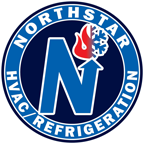The Best HVAC Units for Energy Efficiency: What to Look For
Written by Ed Rice
Energy efficiency is a top priority for homeowners and businesses looking to reduce their energy costs and minimize their environmental footprint. While all major HVAC manufacturers offer energy-efficient product lines, understanding the key features that contribute to efficiency will help you make an informed decision when choosing the best HVAC unit for your needs. This article will guide you through the most important elements to consider when evaluating energy-efficient HVAC systems.
Key Features of Energy-Efficient HVAC Units
1. High SEER and HSPF Ratings
SEER (Seasonal Energy Efficiency Ratio): This rating measures the cooling output of an air conditioner or heat pump over a typical cooling season divided by the total energy it consumes. The higher the SEER rating, the more energy-efficient the unit. The current minimum SEER rating required in many regions is 14, but the most efficient models can have SEER ratings of 20 or higher.
HSPF (Heating Seasonal Performance Factor): For heat pumps, HSPF measures heating efficiency. A higher HSPF rating indicates a more efficient heating system. The minimum standard HSPF rating is 8.2, while high-efficiency models can achieve ratings of 10 or more.
2. ENERGY STAR® Certification ENERGY STAR-certified HVAC units meet strict energy efficiency guidelines set by the U.S. Environmental Protection Agency (EPA). Units with this certification are designed to provide significant energy savings without sacrificing performance or comfort. Choosing an ENERGY STAR-certified product ensures you’re getting an HVAC system that uses less energy and lowers greenhouse gas emissions.
3. Variable-Speed Technology Energy-efficient HVAC units often feature variable-speed compressors and fan motors, which allow the system to adjust its output based on the cooling or heating demand. Unlike single-speed units that operate at full capacity or not at all, variable-speed units can modulate their operation to maintain a consistent temperature. This leads to better energy efficiency, improved humidity control, and quieter operation.
4. Smart Thermostat Compatibility Units that are compatible with smart thermostats offer enhanced energy management. Smart thermostats learn your temperature preferences, adapt to your schedule, and optimize energy usage accordingly. When integrated with an energy-efficient HVAC unit, these devices can reduce energy waste and provide remote control capabilities for even greater efficiency.
5. Advanced Heat Pump Technology Modern heat pumps, particularly those with dual-fuel capabilities, offer excellent energy efficiency. Heat pumps work by transferring heat rather than generating it, which can significantly reduce energy consumption. Dual-fuel systems combine an electric heat pump with a gas furnace, switching between the two based on the outdoor temperature for optimal energy use.
6. High-Efficiency Air Filters An often-overlooked component of an HVAC system, high-efficiency air filters can improve airflow and reduce the system's workload. A cleaner system runs more efficiently and can maintain a longer operational lifespan. Look for units that use advanced filtration technologies to trap more particles while maintaining good airflow.
7. Zoned HVAC Systems Zoning technology allows you to control the temperature in different areas of a building independently. Zoned HVAC systems reduce energy use by heating or cooling only the spaces that are occupied. This targeted approach to climate control enhances comfort while cutting down on wasted energy.
8. Environmentally Friendly Refrigerants Energy-efficient HVAC units often use refrigerants with a lower Global Warming Potential (GWP). These newer refrigerants, such as R-32, are less harmful to the environment compared to older options like R-410A. Choosing a unit with an eco-friendly refrigerant can contribute to reduced carbon emissions and align with sustainability goals.
Tips for Choosing the Best Energy-Efficient HVAC Unit
Assess Your Space: Ensure the HVAC system you choose is appropriately sized for your space. An oversized or undersized unit can lead to inefficiency, higher energy bills, and decreased comfort.
Evaluate the Climate: Depending on your location, certain features may be more valuable. For example, high SEER ratings are more important in warmer climates where cooling is used more frequently, while HSPF ratings are crucial for colder areas.
Review the Manufacturer’s Reputation: While all major manufacturers offer energy-efficient units, research customer reviews and expert opinions to find a reliable brand known for high-performance HVAC systems.
Consult an HVAC Professional: An experienced HVAC technician can evaluate your specific needs and recommend an energy-efficient unit that will provide optimal performance and savings.
How Northstar Refrigeration Can Help
At Northstar Refrigeration, we understand that choosing the right HVAC system is an investment in your home or business. Our experts can guide you through the process of selecting and installing an energy-efficient unit tailored to your specific needs. We’ll ensure that your new system meets or exceeds efficiency standards, helping you save money and reduce your environmental impact.
Contact us today at (508) 888-3692 to learn more about how we can help you find the best energy-efficient HVAC solution for your property.
(508) 888-3692
www.northstarhvacr.com
Edward Rice
Director of Marketing,
Northstar Refrigeration, Inc.
95 Camelot Drive, Unit 1,
Plymouth, MA 02360
erice@northstarhvacr.com www.northstarhvacr.com
p: (508) 888-3692 x115
m: (508) 561-8638



